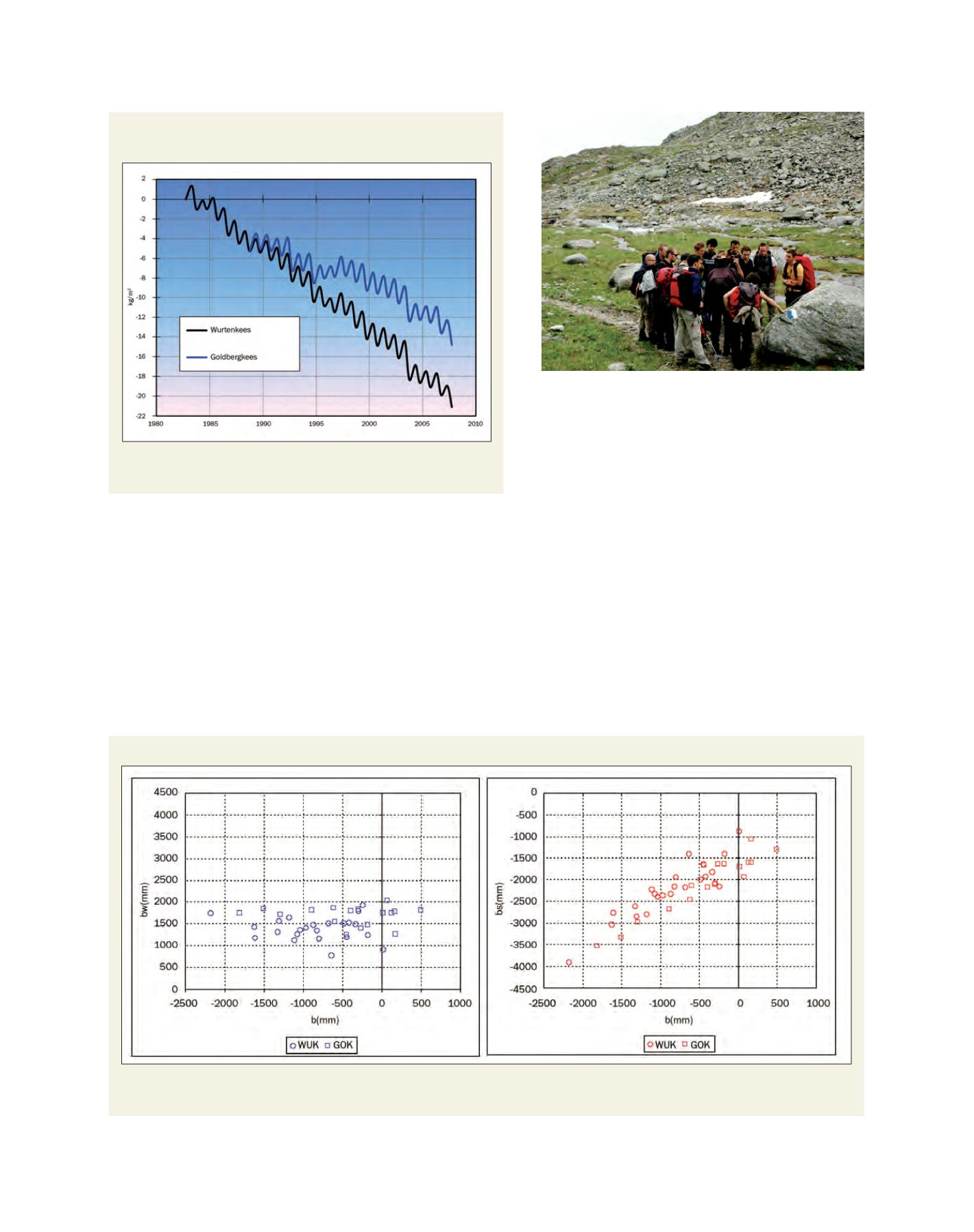

[
] 182
O
bserving
, P
redicting
and
P
rojecting
C
limate
C
onditions
ZAMG runs a detailed glacio-hydrological monitoring programme in
the Sonnblick region of the eastern Austrian Alps covering three smaller
glaciers (about 1 square kilometre) and the largest glacier in Austria;
Pasterze. Since the end of the 19th century all the glaciers investigated
have shown a general retreating trend, and in particular a clear retreat
since the beginning of the 1980s, which is a common signal of Alpine
glaciers. The retreating trend observable since the end of the 19th
century is clearly visible in photographs of glacier Wurtenkees taken in
1896 and 1999. The Sonnblick region is characterized by strong climate
gradients; from a high precipitation region north of the
Alpine main divide to an inner-alpine dry valley south of
it. The monitoring in this area includes measurements
of glacier mass balance (for both winter and annual net
balance), surface flow, glacial discharge and ionic compo-
sition of snow cover. The monitoring is part of a research
programme by the nearby Sonnblick Observatory, which
covers a wide range of atmospheric chemistry as well as
physics, mountain meteorology and permafrost research.
The spatial patterns of climate are well reflected in the
mass balance of the glaciers, with much higher winter
accumulation at the glacier north of the Alpine main
divide compared to the glaciers south of it. The north-
south pattern is also visible in the annual net balance of
glaciersWurtenkees and Goldbergkees withmore negative
Net balance relationships
Relationship between annual net balance (b) and winter net balance (bw, left) and summer net balance (bs, right) for Wurtenkees (WUK) and Goldbergkees
(GOK) from observations since 1983
Source:
www.zamg.ac.at/forschung/klimatologie/glaziologieAccumulated specific mass balances for the
Wurtenkees and Goldbergkees glaciers
Observations since 1983 show that, on average, Wurtenkees loses one metre
per year
Source:
www.zamg.ac.at/forschung/klimatologie/glaziologieScience walk to Sonnblick Observatory in July 2006. A national park
ranger explains the first information board of the glacier trail
Image: Gernot Weyss
















